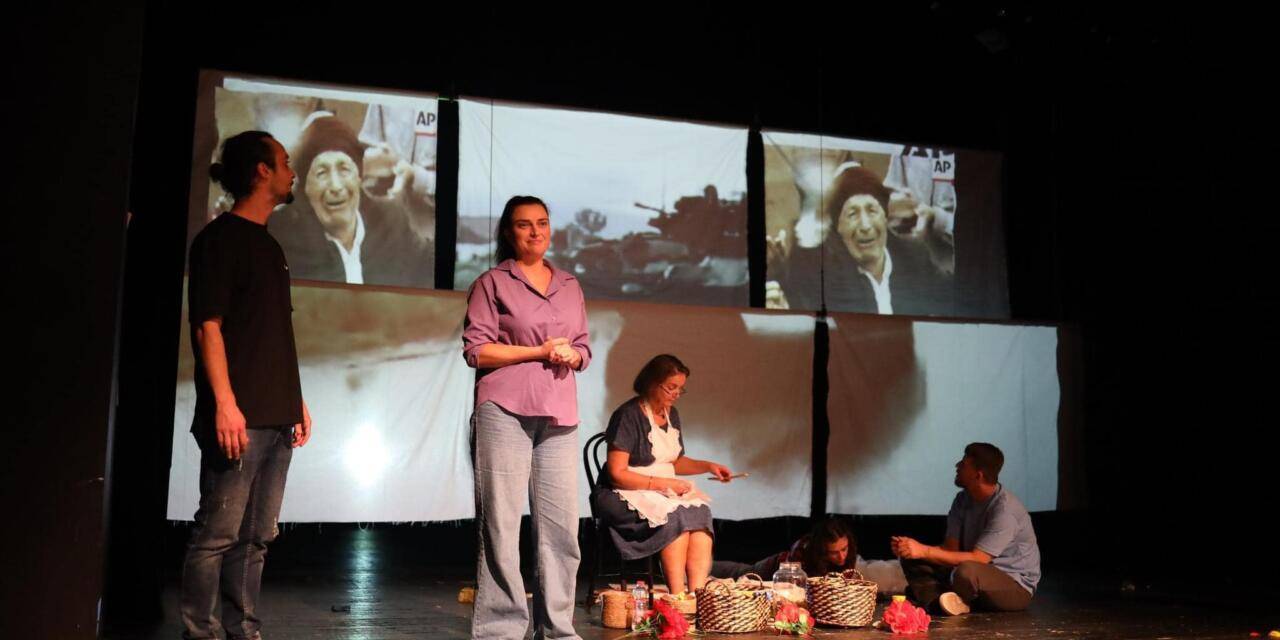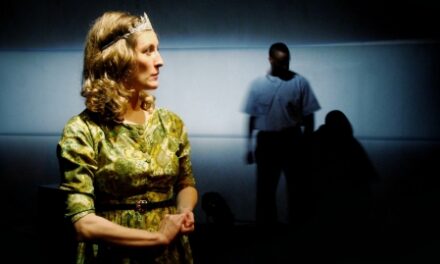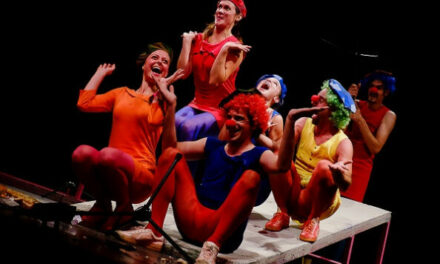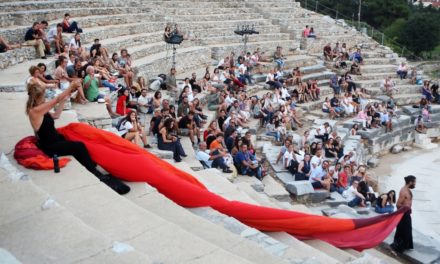The Shadow Garden, part of this year’s Kosovo Theatre Showcase, seems an almost impossible task to stage. It is inspired by Saranda, Jehona and Fatos Bogujevci, who, during the Kosovo war, survived the massacre of fifteen members of their family in Podujeva in 1999. The play by British writer Sarah Hehir, is a true to life account of and bears witness to the fact that they were the first children to give evidence in a war crimes tribunal – the trio later went on to win the Anne Frank Award for Moral Courage. The problem faced by Hehir (part of the team who writes The Archers), UK-based Polish director Nastazja Domaradzka and the Kosovo creative associates and ensemble was how not to make this true story about cold-blooded execution, truth, justice and healing “trauma porn,” a concern Domaradzka already raised in an interview.
Set in the garden where the massacre took place, Hehir knew she could set the play nowhere else. It is not driven by conventional narrative and centres on the Bogujevci family before, during and after that dreadful day in 1999, just as the family were going to celebrate the end of Eid. It also follows the surviving children to Manchester, UK, where they went to receive treatment and where, incidentally, Hehir was also working with Balkan refugees. Despite moving backwards and forwards in time, replicating the chaotic destruction that PTSD can bring to people’s memories of traumatic events, there’s a haunting throughout the piece that’s framed at the beginning by a very extended hide and seek play sequence. None of the adult ensemble playing the children say a word except to utter the odd direction about where to hide during their game. Later, as the tragedy and its consequences unfold, clothes on a washing line serve as video screens onto which visuals of government and social institutions and personages, which make all the important decisions about people’s lives, including life and death, are projected. The videos, by Irish Video/lighting designer Al Orange uses images of Bill Clinton, the war, lips that have no bodies spouting media facts and figures, and images of hospitals that are freely interspersed with Christian Boltanski like images of the family. Meanwhile, the actors, as the children, try to act out what happened that day to the backdrop of music by Kosovo composer Tomor Kuçi.
The play eventually moves on to diplomats and politicians who try to persuade the children to testify against the Serb soldiers who decimated their family. The actors know that they can’t convey the emotion and trauma and complexities the children must have felt about standing up in front of the whole world and describing what happened to them and their family members. So they don’t try. Instead, for much of the show, the actors use the text as a starting point to exemplify how they find it hard to make sense of their memories and to speak. The visual scenography of the show, haphazard and jumbled, pays heed to the fact that traumatic recollection of such terrible crimes is jagged and confused. There is a constant interplay and juxtaposition between the text and the dramaturgy that seeks to investigate the gap between memory and giving words to those memories.
It is fitting, then, that the show returns to the poignancy of Hehir’s text towards the end and strips itself of visual distraction once the children finally get to the courts. It recognises the fact, the irony, that war crime victims must, in order to bring their victors to justice, fine-tune their experiences down to carefully crafted minute sentences that accurately reflect what happened and also give a sense of the years of pain, flash backs, incoherence and confusion. Sentences that must convince. How can a person adequately express and describe, logically and clearly, using language, such crimes and traumas? In some ways, isn’t it ridiculous, though necessary? The show brilliantly recognises this.
After the show at the City Theatre of Gjilan in Kosovo in October’s showcase, several Kosovo audience members were in tears. It is a fitting theatrical memorial to the tragedy and to the brave children of the Bogujevci family.
The Shadow Garden was part of The Kosovo Theatre Showcase 2023. It is produced by City Theater of Gjilan.
This post was written by the author in their personal capacity.The opinions expressed in this article are the author’s own and do not reflect the view of The Theatre Times, their staff or collaborators.
This post was written by Verity Healey.
The views expressed here belong to the author and do not necessarily reflect our views and opinions.





![Avignon 2019: Seeking Truth: On History, Memory and Fiction in Alexandra Badea’s Points de Non-Retour [Quais de Seine]](https://thetheatretimes.com/wp-content/uploads/2019/07/quais-440x264.jpg)












